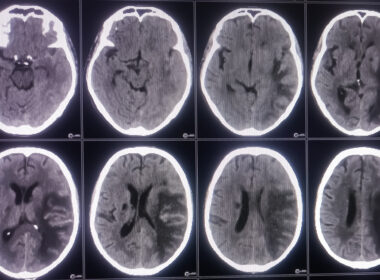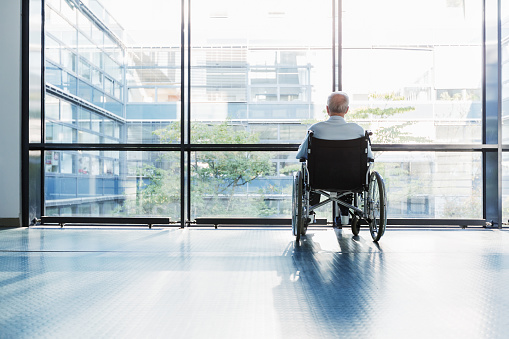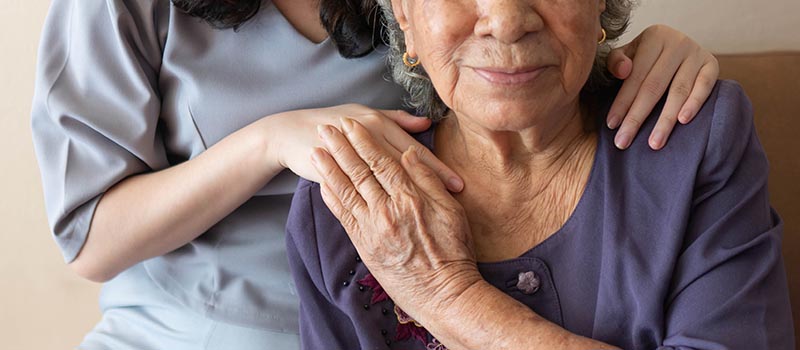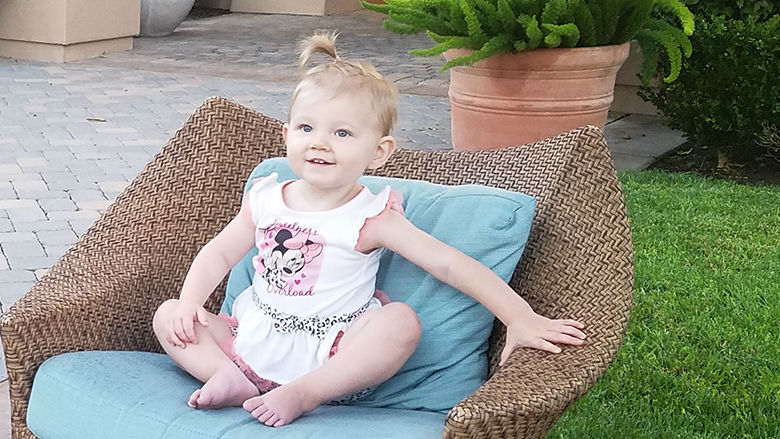Nursing homes are places where individuals who are unable to care for themselves due to old age or illness can live. The staff at nursing homes is usually very well trained, and many nursing home residents have lived there for years, some even decades.
Unfortunately, there have been instances of nursing home negligence over the years. In fact, according to data from WHO, 2 out of 3 nursing home staff admitted to elder abuse in 2020. These incidents often result in lawsuits against the nursing home.
It’s important to understand your rights if you are a victim of nursing home abuse, for example sexual abuse, physical abuse or neglect. This is critical especially if you’re considering taking legal action against the nursing home.
This article covers what is neglect in a nursing home, nursing home abuse law, and how you can sue in case your loved one is a victim of nursing home abuse or negligence.
What Is Considered Nursing Home Neglect Or Elder Abuse?
Nursing home abuse or neglect is any mistreatment of a nursing home resident by a caregiver or facility staff member, or the failure to provide adequate care. This occurrence can take many forms and can include physical, sexual, emotional, psychological, or financial mistreatment.
Nursing home abuse is a serious problem in the United States. The National Center for Victims of Crime reports that 5.1% of elder abuse complaints in 2013 are due to nursing home negligence. Unfortunately, every year, thousands of elderly residents are still being abused, neglected, or exploited by the very people who have been entrusted with their care and safety.
Types Of Nursing Home Abuse
Nursing home abuse can take many forms, including physical, sexual, and emotional abuse. The signs of nursing home abuse include unexplained injuries, unexplained bruises or other marks on the body, poor hygiene, sudden weight loss or gain, lack of medical care, unkempt appearance, and withdrawn behavior.
Nursing home residents are particularly vulnerable because they may be unable to report the abuse themselves or may be too confused to understand it.
The following types of nursing home abuse are all examples of what you should watch out for:
Physical Abuse: Physical abuse occurs when someone uses force on another person in an attempt to cause physical pain or injury. This type of abuse often leaves visible evidence, such as bruises and cuts on the body. It also may result in injuries like broken bones or fractures. Get professional medical advice from personal injury lawyers before filing a strong case against physical injuries. In some instances, you need to appeal for adult protective services.
Emotional Abuse: Emotional abuse can take many forms, including yelling at or humiliating an elderly person. Emotional abuse also includes isolating an elderly person from friends and family and preventing them from seeing visitors.
Sexual Assault: Sexual abuse is any non-consensual sexual contact with an elderly person. Sexual assault includes acts such as rape, genital touching, or fondling by another person without consent.
Financial Exploitation: This is also a common form of nursing home abuse. Financial abuse occurs when someone steals or misuses the money or property of an elderly person with dementia or other disabilities. It can be carried out by employees, family, or even strangers who befriend the victim.
Neglect: Neglect is an act that fails to meet the needs of a person with disabilities due to a lack of knowledge or willfulness.
Examples of what is considered neglect in a nursing home include failing to provide adequate food, clothing, or shelter; failure to provide necessary care; failure to provide adequate supervision or personal care; failure to protect from health and safety hazards; failure to respect the resident’s rights; failure to meet specific needs based on cultural background; and failing to prevent accidents and injuries caused by resident’s mental status (elderly).
What Does The Law Say About Nursing Home Abuse?
If you suspect that your loved ones have been harmed or neglected, it’s important to know the nursing home abuse law that can protect them. This can help other nursing home residents, as well after you report the abuse.
What one nursing home abuse law should you know? The Nursing Home Reform Act of 1987 requires nursing homes to provide safe and quality care in order to receive federal reimbursement. In addition to complying with federal regulations, each state has its own laws regarding nursing home abuse which may be stricter than federal laws.
For example, in line with directives from The Office of Inspector General for the United States Department of Health and Human Services, all states require nursing homes to report incidents of suspected abuse to the appropriate authorities within 24 hours.
According to the nursing home abuse law, these reports must include details about the incident including names of any witnesses who may have seen it occur. In some states, these reports must also include information about how the facility handles the abuse once it is reported to them by staff members or other residents within the facility.
Unfortunately, not every victim of nursing home abuse reports these occurrences. In some cases, this is because they are afraid that reporting will worsen the issue. In other cases, they don’t know that they can seek redress or do not have family members who can take up the matter for them.
But this should not be so. If you or someone you know has been a victim of nursing home abuse, you can take legal action and file a nursing home lawsuit to hold the facility accountable.
Holding Care Facilities Liable For Nursing Home Residents Negligence
When a loved one is admitted to a nursing home, it’s natural to trust that they will be taken care of. Unfortunately, sometimes things go wrong. The person may suffer nursing home abuse resulting in injury or illness, or neglect, which may result in their death. If it ever comes to death don’t hesitate to file a wrongful death lawsuit.
If you have reason to believe that your loved one was a victim of nursing home abuse or neglect, it’s important to take action within the the confines of the nursing home abuse law as soon as possible. There are various steps you can take to make sure the facility is held accountable for any injuries or deaths that occurred on its watch.
THE FIRST STEP IN PROVING ABUSE – GATHER EVIDENCE
A common misconception about elder abuse and neglect is that you need to be a direct witness of the act in order for it to be considered abuse. According to the nursing home abuse law, all nursing home abuse allegations have to be taken seriously. Any act of elder abuse and neglect that occur behind closed doors is worth acting upon. This can make proving elder abuse or neglect very difficult, especially when your loved one is in denial or reluctant to talk about what has happened.
However, there are some key steps you can take to gather evidence against your loved one’s abuser.
- Witness statements from those who have seen the abuse take place
- Documentation from medical professionals documenting injuries sustained by your loved one as a result of the abuse
- Photos or videos documenting injuries sustained by your loved one as a result of the abuse
- Evidence of financial exploitation, such as withdrawals made without your permission
The more nursing home abuse evidence you have, the stronger your case will be.
THE SECOND STEP IN PROVING ABUSE – HIRE A QUALIFIED LAWYER
The second step in your legal action is get a lawyer who can provide a free legal case review. if you ca n afford, hire an experienced elder abuse lawyer who can help you get justice.
Nursing home abuse is a serious problem. WHO estimates that elder abuse in communities and institutional settings may have increased by about 84% post-covid. And the numbers may be even higher.
Even if you aren’t sure whether your loved one has been through nursing home abuse, it’s important to take action as soon as possible. In many cases, evidence disappears quickly and memories fade over time. If you don’t report suspected abuse immediately, there might not be enough evidence, later on, to prove that something happened—and your loved one could suffer serious consequences because of it
Remember that it’s extremely important for you to find a lawyer who handles these types of cases on a regular basis. You want someone who knows what they’re doing, so make sure that they have years of experience handling these types of cases before choosing one.
Another thing to remember is that it’s also important for you to find an attorney who has experience in your state or region. Find an attorney who knows exactly how things work where you live so that they can help protect your best interests during this process.
THE THIRD STEP IN PROVING ABUSE – FILE YOUR CLAIM
If you suspect that your loved one is being abused or neglected in a nursing home, you or your lawyer should first notify the nursing home of your concerns. This is a crucial step because it allows them to address your concerns immediately. It also serves to provide a record of your complaint, should you decide to file a suit.
If the issue still remains unresolved, you may be able to file a nursing home abuse claim with your state’s long-term care ombudsman program. The ombudsman will investigate the complaint and make recommendations to resolve it. If they can’t resolve your complaint on their own, they will advocate on your behalf at the state level and work with your local government agencies to resolve the issue.
If you’re still unsatisfied with their efforts, your lawyer can then file an administrative complaint with Medicare or Medicaid or file a lawsuit against the facility for negligence or intentional infliction of abuse.
Why File a Nursing Home Abuse Lawsuit?
When you are considering filing a nursing home abuse lawsuit, it’s important to understand why you are doing it. There are many reasons why you might want to seek compensation after suffering abuse at a nursing home. Here are some reasons why you should file this type of lawsuit:
- You will recover compensation for damages that were caused by the negligence of the nursing home’s employees. These damages could include medical bills, pain and suffering, emotional distress, and everything related to the nursing home abuse.
- The nursing home may be held legally responsible for the actions of its employees and therefore must pay for any harm that they caused to your loved one or other residents at the facility. This could include paying for rehabilitation services as well as counseling expenses if these are needed due to the injuries that were sustained during abusive incidents at the facility; however, it will depend on what type of injuries were sustained by your loved one during these incidents.
- Filing a lawsuit against the care facility will also help to prevent nursing home abuse from repeating at this facility or any other like it in your area because it sends a message.
Types of Nursing Home Abuse Lawsuits
There are many different types of nursing home abuse lawsuits, but some of the most common include:
Torts: Most nursing home abuse lawsuits are based on torts or intentional acts performed by caregivers that cause harm to their patients. These cases can be brought under state or federal law, depending on the circumstances of the case.
Breach of contract cases: In addition to torts, victims can also sue for breach of contract if there is a contractual agreement between them and the nursing home to provide certain services or care. This could include a written or verbal agreement with staff members about how they will treat patients or what kind of care they will receive at the facility.
Wrongful death suits: These suits are filed by family members after the death of their loved one as a result of wrongful acts by another. Wrongful death suits can be filed against anyone who was involved in causing or contributing to the death of the senior citizen, including doctors, nurses, and other medical professionals as well as nursing home staff members and administrators.
Who Can Be Sued In Cases Of Nursing Home Abuse Or Neglect In Nursing Homes?
In cases of nursing home abuse, there are several parties that can be held liable for damages.
THE NURSING HOME
In most cases, it is clear who is responsible for the abuse or neglect of the resident: the nursing home itself. The nursing home has an obligation to provide safe care to its residents. If it fails to do so, then it can be held liable for any injuries suffered by its residents as a result of that failure.
THE NURSING HOME EMPLOYEE
A nursing home employee who was responsible for providing care to the resident may also be liable if they caused harm to that resident through negligence or deliberate action. For example, if an employee failed to check on a resident who was not feeling well, then they may be personally liable for any injuries caused by failing to attend to their needs.
THE OWNER OF THE FACILITY/ THE ADMINISTRATOR OF THE FACILITY
In some cases, the owners or administrators of the nursing homes may also be sued of nursing home abuse if he failed to maintain it properly or had notice of unsafe conditions at the facility but failed to take steps to correct them.
Of course, it can be difficult to determine who is at fault in cases like these. But your lawyer will be able to help make this determination based on the evidence available and professional experience.
Is It Difficult To Sue A Nursing Home For Negligence?
It’s not easy to sue a nursing home for negligence.
Nursing homes are, after all, businesses whose owners are generally motivated to keep their facilities running smoothly and safely. But when they fail to do so, they can be held liable for any injuries or wrongful death that occur.
To bring a nursing home negligence lawsuit, you’ll need to prove that:
- The facility had a duty of care;
- It breached that duty by failing to provide adequate care;
- That breach caused your injury; and
- You suffered actual damages as a result of the breach.
How Much Can You Sue a Nursing Home for Neglect?
The amount of money you can receive in damages when you sue in a nursing home neglect case differs from one case to another, but it usually depends on the severity of the injuries, how long they lasted and whether or not they are permanent.
Final Thoughts
Nursing home abuse is a problem across the nation. As more residents are being moved into these homes, more issues are arising as well.
In several cases, nursing home abuse go uncorrected despite policies to stop it. But victims and their loved ones can fight back. If you’re an elderly resident or know someone who has been the victim of any type of nursing home abuse, do not hesitate to get help from an experienced legal team which is well-versed in the nursing home abuse law. This can guide you through your options.
You can get financial compensation for your pain and suffering, and expose the abuse and neglect happening in these facilities.












